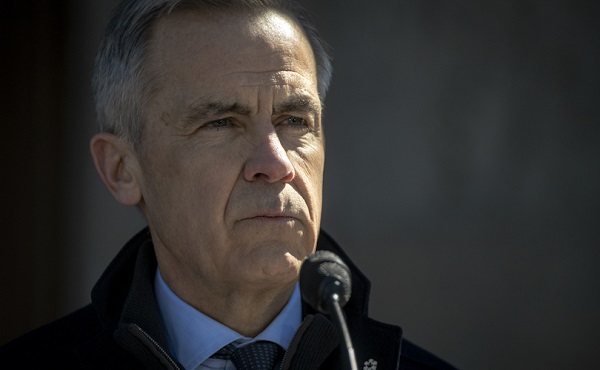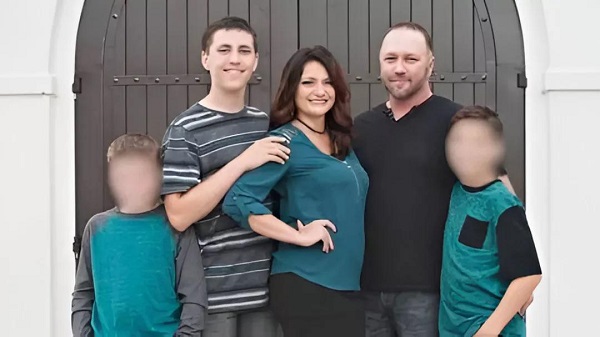Brownstone Institute
Who Ultimately Wins in a Society of Flash Mob Moralists?

From the Brownstone Institute
BY
A big story in the hockey world in recent days centers on the Boston Bruins’ decision to offer, and then rescind, a contract to promising 20-year-old defenseman Matthew Miller.
Miller was drafted in the 4th round of the 2020 NHL draft by the Arizona Coyotes, who subsequently renounced their rights to the player when two journalists from the Arizona Republic reported the player had been convicted at age 14 in an Ohio juvenile court of serially abusing a developmentally disabled fellow student of color.
As a result of the same stories, apparently spurred by testimony given by the victim and his family, Miller was stripped of his hockey scholarship at the University of North Dakota.
Two years later, after talking with Miller and his agent the Bruins management decided that Miller was worthy of a second chance.
However, after a fierce media/social media storm ensued—in the midst of which NHL commissioner Gary Bettman announced that he would have the last word on deciding who would be eligible to play in the NHL—the Bruins rescinded the recently signed contract, saying they had discovered unspecified “new information” about Miller in recent days.
And thus ended yet another of our era’s online morality plays, dramas wherein the social capital of personal aggrievement, magnified by the vicarious expressions of outrage emanating from largely anonymous online mobs, invariably rules the day.
I’ve got nothing against morally-infused personal outrage. Indeed, I’ve got plenty of it. Moreover, I am well aware of the role it has played in regulating behavior in social collectives throughout history.
But I also know that one of the things that made the emergence of modern democracies possible was the subordination of mob-style moral outrage, and its twin brother personal vengeance, to the rule of law.
Is the application of the law often imperfect? Absolutely. Does the restitution it offers, when it indeed does offer restitution at all, almost always fall well short of what the victims of the injustice believe is owed to them? No doubt.
The founders of our institutions were not unaware of these limitations. But they believed that flawed justice such as this was infinitely superior to the alternative, which they correctly understood to be a society “regulated” by some mixture or another of personal vendettas and mob rule.
I have read the news reports about what Matthew Miller did to Isaiah Meyer-Crothers during the course of what is said to be several years of bullying, allegedly starting when both were 7 years old. The incident most commonly adduced by the press to exemplify this sad period of harassment—Miller’s getting Meyer-Crothers to lick a push-pop that had been dipped in urine—is repellent beyond belief. And I know that if I were Isaiah and/or his family I’d have a very hard time ever forgiving him for these aggressions and for the way it no doubt damaged the disabled youngster’s psychological well-being.
But does it mean that Miller, himself a probable victim of some sort of abuse or neglect to engage in such sadism at such a young age, has to be a social pariah for life, unable to exercise his skills in the workplace? This, when a veritable host of professional athletes who have done far worse things as adults (e.g. Ray Lewis, Craig MacTavish) have been breezily pardoned and welcomed back into the playing and/or management ranks. Apparently it’s much easier to go after a 20-year-old kid than an established star whose jersey you bought for yourself or your kids.
To pose the above question is not, as so many eager and zealous moralists in the comments section of the oh-so-liberal Boston Globe sports section and other places would have us believe, the same as “excusing what Miller did” or being in any way heedless of the serious damage that his childhood/adolescent actions had on Meyer-Crothers. Nor does it imply that Matthew Miller’s transgressions were just a case of “boys being boys” or that you believe he has been reborn as a moral angel.
As is usually the case, things are far more complex than that.
It is my understanding that Matthew Miller was remitted to the existing system of juvenile justice, did whatever putatively proportional penance was levied on him by the system, discharged, and allowed to get on with his life.
And in keeping with the fundamental precepts of juvenile justice, rooted in the belief that no one should be condemned in perpetuity for acts committed before the onset of full adult moral reasoning, the records were sealed. And as far as I’ve been able to tell, he has not been remitted to the justice system since that time.
When he was drafted in 2020, someone, however, violated the spirit of this principle and brought up Miller’s juvenile transgressions and contacted the victim who expressed his dismay at the possibility that Miller might be afforded the possibility of going on to a life of wealth and fame. “Everyone thinks he’s so cool that he gets to go to the NHL, but I don’t see how anyone can be cool when you pick on someone and bully someone your entire life.”
This is a perfectly understandable sentiment, one that is expressed a lot more tamely than what I might have said were I in his same position.
However, the bigger question is if, in a supposed society of laws, these more than legitimate feelings about seeing your one-time tormentor experience recognition and the possibility for success can and should be used as a means of imposing—through media-social media-business collusion—a de facto form of double jeopardy on someone who has theoretically paid his debt to society?
Do we really want to live in a society where, if you can recruit a posse of infuriated and media-savvy moralists you can supersede not only the intended effects of the law, but perhaps more importantly in the long run, the possibilities of healing in both the aggressor and his victim? Do we really want to effectively lock two young people into the tormentor-victim dynamic for the rest of their lives?
According to this logic, prison education programs like the one I taught in for many years, and where I experienced the most vibrant and meaningful classroom interactions of my teaching career, should not exist.
Rather as someone conscious of some of the heinous things that my would-be students had done, I should, according to the logic at play in the Miller case, have haughtily rebuffed my colleagues when they asked me to join the effort, telling them in no uncertain terms that “I don’t in any way wish to support or dignify ‘animals’ such as these.”
I would then proudly tell everyone that would listen about how I had strongly enunciated and defended my clear and unbending moral principles in the face of requests to glorify criminals and their crimes.
Again, is this really a model of moral comportment that we want to advance and normalize?
Sadly, the answer of many—apparently secure in the belief that their immaculate children could never, ever be agents of evil—to this question appears to be “yes.”
Indeed, wasn’t it a simple variation of this dynamic of stigmatize, dehumanize and shun—rooted in the idea that evil is always pure and located elsewhere—that psychologically underwrote the worst repressions of the High Covid era?
As bad as this practice of eschewing the prospect of healing in favor of preening self-regard and continued aggrieved tension is, it may not even be the worst part of the new trend toward widespread armchair moralizing.
Arguably more troubling is the damage such practices do to what might be called our society’s “economy of concern.” Like most everything about us, our ability to pay attention to the world outside our heads is limited. The kingpins of the new cyber economy know this, and are laser-focused on getting us to give as much of this scarce and extremely valuable resource to them during the course of our days.
They do so most obviously to sell us things we often don’t need or intrinsically want. But they also do so to keep us from thinking about how the social structures they have a huge say in shaping do or do not serve our long-term interests.
How?
By encouraging us to spend cognitive, emotional and moral energies on people and things that ultimately lie well beyond our own radius of personal control.
Like, for example, on young hockey players who made ugly mistakes as a child and early adolescent or, conversely, on the truly heart-wrenching stories of his victim.
Will fulminating online about the young hockey player’s past really solve any of our real problems?
Obviously not.
But it will take energy away from addressing big and structurally-imposed violations of basic rights happening today.
Every minute spent talking today about a single child-on-child abuse case legally resolved, however imperfectly, 6 years ago is a minute not spent addressing the cruelties and injustices of government-on-child abuse taking place today, much of it on the name of “fighting Covid.” outrages eloquently and passionately denounced here by Laura Rosen Cohen .
In effect, when we allow ourselves to be swept up into object-free campaigns of moral virtue-signaling about past personal cases, we are giving those in big entrenched centers of power much more space to enact and consolidate enveloping systems of citizen abuse and social control. And if you think these entrenched centers of power are beyond thinking of how to stimulate diversionary campaigns of small-bore outrage, then it’s time you wake up to the new realities of our world.
A half-century ago, certain activists declared that now “The personal is the political.” It was an alluring soundbite and like so many alluring soundbites overly simplistic. Should we strive to always inject the personal concerns of the citizenry into policy-making discussions? Of course.
That said, there is, and must always be, as Hannah Arendt reminded us, a barrier between our private and public selves as well as an acceptance, as excruciatingly difficult as it might be to do, of the unfortunate role of unrequited tragedy in the lives of us all.
Do I wish that the pain of Meyer-Crothers could have been eliminated by Ohio’s system of juvenile justice? I obviously do. But sadly, that’s not how it works. A public justice system is not designed to eliminate pain, but rather attenuate its onward march, and in this way, provide a possible opening for healing.
The internet has, for better or worse, created new forms of social organization and political mobilization. As we have seen in the Miller case, the Meyer-Crothers family, backed by journalists and online activists, has sought, in effect, to gain a measure of the moral payback the justice system was unable to provide them.
Is it understandable? Yes. Is it their right? Certainly.
Is using these new methods of mobilization to effectively override the legal system and create what are effectively vigilante forms of retribution good for the future of our society and culture?
Probably not.
While it may make a lot of people feel good about themselves at the moment, it will only further corrode trust in the rule of law— a shift that always favors the powerful—and take valuable energy away from the urgent task of fighting massive and systematic government and corporate assaults on our dignity and freedom.
Brownstone Institute
Net Zero: The Mystery of the Falling Fertility

From the Brownstone Institute
By
If you want to argue that a mysterious factor X is responsible for the drop in fertility, you will have to explain (1) why the factor affected only the vaccinated, and (2) why it started affecting them at about the time of vaccination.
In January 2022, the number of children born in the Czech Republic suddenly decreased by about 10%. By the end of 2022, it had become clear that this was a signal: All the monthly numbers of newborns were mysteriously low.
In April 2023, I wrote a piece for a Czech investigative platform InFakta and suggested that this unexpected phenomenon might be connected to the aggressive vaccination campaign that had started approximately 9 months before the drop in natality. Denik N – a Czech equivalent of the New York Times – immediately came forward with a “devastating takedown” of my article, labeled me a liar and claimed that the pattern can be explained by demographics: There were fewer women in the population and they were getting older.
To compare fertility across countries (and time), the so-called Total Fertility Rate (TFR) is used. Roughly speaking, it is the average number of children that are born to a woman over her lifetime. TFR is independent of the number of women and of their age structure. Figure 1 below shows the evolution of TFR in several European countries between 2001 and 2023. I selected countries that experienced a similar drop in TFR in 2022 as the Czech Republic.

So, by the end of 2023, the following two points were clear:
- The drop in natality in the Czech Republic in 2022 could not be explained by demographic factors. Total fertility rate – which is independent of the number of women and their age structure – dropped sharply in 2022 and has been decreasing ever since. The data for 2024 show that the Czech TFR has decreased further to 1.37.
- Many other European countries experienced the same dramatic and unexpected decrease in fertility that started at the beginning of 2022. I have selected some of them for Figure 1 but there are more: The Netherlands, Norway, Slovakia, Slovenia, and Sweden. On the other hand, there are some countries that do not show a sudden drop in TFR, but rather a steady decline over a longer period (e.g. Belgium, France, UK, Greece, or Italy). Notable exceptions are Bulgaria, Spain, and Portugal where fertility has increased (albeit from very low numbers). The Human Fertility Project database has all the numbers.
This data pattern is so amazing and unexpected that even the mainstream media in Europe cannot avoid the problem completely. From time to time, talking heads with many academic titles appear and push one of the politically correct narratives: It’s Putin! (Spoiler alert: The war started in February 2022; however, children not born in 2022 were not conceived in 2021). It’s the inflation caused by Putin! (Sorry, that was even later). It’s the demographics! (Nope, see above, TFR is independent of the demographics).
Thus, the “v” word keeps creeping back into people’s minds and the Web’s Wild West is ripe with speculation. We decided not to speculate but to wrestle some more data from the Czech government. For many months, we were trying to acquire the number of newborns in each month, broken down by age and vaccination status of the mother. The post-socialist health-care system of our country is a double-edged sword: On one hand, the state collects much more data about citizens than an American would believe. On the other hand, we have an equivalent of the FOIA, and we are not afraid to use it. After many months of fruitless correspondence with the authorities, we turned to Jitka Chalankova – a Czech Ron Johnson in skirts – who finally managed to obtain an invaluable data sheet.
To my knowledge, the datasheet (now publicly available with an English translation here) is the only officially released dataset containing a breakdown of newborns by the Covid-19 vaccination status of the mother. We requested much more detailed data, but this is all we got. The data contains the number of births per month between January 2021 and December 2023 given by women (aged 18-39) who were vaccinated, i.e., had received at least one Covid vaccine dose by the date of delivery, and by women who were unvaccinated, i.e., had not received any dose of any Covid vaccine by the date of delivery.
Furthermore, the numbers of births per month by women vaccinated by one or more doses during pregnancy were provided. This enabled us to estimate the number of women who were vaccinated before conception. Then, we used open data on the Czech population structure by age, and open data on Covid vaccination by day, sex, and age.
Combining these three datasets, we were able to estimate the rates of successful conceptions (i.e., conceptions that led to births nine months later) by preconception vaccination status of the mother. Those interested in the technical details of the procedure may read Methods in the newly released paper. It is worth mentioning that the paper had been rejected without review in six high-ranking scientific journals. In Figure 2, we reprint the main finding of our analysis.

Figure 2 reveals several interesting patterns that I list here in order of importance:
- Vaccinated women conceived about a third fewer children than would be expected from their share of the population. Unvaccinated women conceived at about the same rate as all women before the pandemic. Thus, a strong association between Covid vaccination status and successful conceptions has been established.
- In the second half of 2021, there was a peak in the rate of conceptions of the unvaccinated (and a corresponding trough in the vaccinated). This points to rather intelligent behavior of Czech women, who – contrary to the official advice – probably avoided vaccination if they wanted to get pregnant. This concentrated the pregnancies in the unvaccinated group and produced the peak.
- In the first half of 2021, there was significant uncertainty in the estimates of the conception rates. The lower estimate of the conception rate in the vaccinated was produced by assuming that all women vaccinated (by at least one dose) during pregnancy were unvaccinated before conception. This was almost certainly true in the first half of 2021 because the vaccines were not available prior to 2021. The upper estimate was produced by assuming that all women vaccinated (by at least one dose) during pregnancy also received at least one dose before conception. This was probably closer to the truth in the second part of 2021. Thus, we think that the true conception rates for the vaccinated start close to the lower bound in early 2021 and end close to the upper bound in early 2022. Once again, we would like to be much more precise, but we have to work with what we have got.
Now that the association between Covid-19 vaccination and lower rates of conception has been established, the one important question looms: Is this association causal? In other words, did the Covid-19 vaccines really prevent women from getting pregnant?
The guardians of the official narrative brush off our findings and say that the difference is easily explained by confounding: The vaccinated tend to be older, more educated, city-dwelling, more climate change aware…you name it. That all may well be true, but in early 2022, the TFR of the whole population dropped sharply and has been decreasing ever since.
So, something must have happened in the spring of 2021. Had the population of women just spontaneously separated into two groups – rednecks who wanted kids and didn’t want the jab, and city slickers who didn’t want kids and wanted the jab – the fertility rate of the unvaccinated would indeed be much higher than that of the vaccinated. In that respect, such a selection bias could explain the observed pattern. However, had this been true, the total TFR of the whole population would have remained constant.
But this is not what happened. For some reason, the TFR of the whole population jumped down in January 2022 and has been decreasing ever since. And we have just shown that, for some reason, this decrease in fertility affected only the vaccinated. So, if you want to argue that a mysterious factor X is responsible for the drop in fertility, you will have to explain (1) why the factor affected only the vaccinated, and (2) why it started affecting them at about the time of vaccination. That is a tall order. Mr. Occam and I both think that X = the vaccine is the simplest explanation.
What really puzzles me is the continuation of the trend. If the vaccines really prevented conception, shouldn’t the effect have been transient? It’s been more than three years since the mass vaccination event, but fertility rates still keep falling. If this trend continues for another five years, we may as well stop arguing about pensions, defense spending, healthcare reform, and education – because we are done.
We are in the middle of what may be the biggest fertility crisis in the history of mankind. The reason for the collapse in fertility is not known. The governments of many European countries have the data that would unlock the mystery. Yet, it seems that no one wants to know.
Author
Brownstone Institute
FDA Exposed: Hundreds of Drugs Approved without Proof They Work

From the Brownstone Institute
By
The US Food and Drug Administration (FDA) has approved hundreds of drugs without proof that they work—and in some cases, despite evidence that they cause harm.
That’s the finding of a blistering two-year investigation by medical journalists Jeanne Lenzer and Shannon Brownlee, published by The Lever.
Reviewing more than 400 drug approvals between 2013 and 2022, the authors found the agency repeatedly ignored its own scientific standards.
One expert put it bluntly—the FDA’s threshold for evidence “can’t go any lower because it’s already in the dirt.”
A System Built on Weak Evidence
The findings were damning—73% of drugs approved by the FDA during the study period failed to meet all four basic criteria for demonstrating “substantial evidence” of effectiveness.
Those four criteria—presence of a control group, replication in two well-conducted trials, blinding of participants and investigators, and the use of clinical endpoints like symptom relief or extended survival—are supposed to be the bedrock of drug evaluation.
Yet only 28% of drugs met all four criteria—40 drugs met none.
These aren’t obscure technicalities—they are the most basic safeguards to protect patients from ineffective or dangerous treatments.
But under political and industry pressure, the FDA has increasingly abandoned them in favour of speed and so-called “regulatory flexibility.”
Since the early 1990s, the agency has relied heavily on expedited pathways that fast-track drugs to market.
In theory, this balances urgency with scientific rigour. In practice, it has flipped the process. Companies can now get drugs approved before proving that they work, with the promise of follow-up trials later.
But, as Lenzer and Brownlee revealed, “Nearly half of the required follow-up studies are never completed—and those that are often fail to show the drugs work, even while they remain on the market.”
“This represents a seismic shift in FDA regulation that has been quietly accomplished with virtually no awareness by doctors or the public,” they added.
More than half the approvals examined relied on preliminary data—not solid evidence that patients lived longer, felt better, or functioned more effectively.
And even when follow-up studies are conducted, many rely on the same flawed surrogate measures rather than hard clinical outcomes.
The result: a regulatory system where the FDA no longer acts as a gatekeeper—but as a passive observer.
Cancer Drugs: High Stakes, Low Standards
Nowhere is this failure more visible than in oncology.
Only 3 out of 123 cancer drugs approved between 2013 and 2022 met all four of the FDA’s basic scientific standards.
Most—81%—were approved based on surrogate endpoints like tumour shrinkage, without any evidence that they improved survival or quality of life.
Take Copiktra, for example—a drug approved in 2018 for blood cancers. The FDA gave it the green light based on improved “progression-free survival,” a measure of how long a tumour stays stable.
But a review of post-marketing data showed that patients taking Copiktra died 11 months earlier than those on a comparator drug.
It took six years after those studies showed the drug reduced patients’ survival for the FDA to warn the public that Copiktra should not be used as a first- or second-line treatment for certain types of leukaemia and lymphoma, citing “an increased risk of treatment-related mortality.”
Elmiron: Ineffective, Dangerous—And Still on the Market
Another striking case is Elmiron, approved in 1996 for interstitial cystitis—a painful bladder condition.
The FDA authorized it based on “close to zero data,” on the condition that the company conduct a follow-up study to determine whether it actually worked.
That study wasn’t completed for 18 years—and when it was, it showed Elmiron was no better than placebo.
In the meantime, hundreds of patients suffered vision loss or blindness. Others were hospitalized with colitis. Some died.
Yet Elmiron is still on the market today. Doctors continue to prescribe it.
“Hundreds of thousands of patients have been exposed to the drug, and the American Urological Association lists it as the only FDA-approved medication for interstitial cystitis,” Lenzer and Brownlee reported.
“Dangling Approvals” and Regulatory Paralysis
The FDA even has a term—”dangling approvals”—for drugs that remain on the market despite failed or missing follow-up trials.
One notorious case is Avastin, approved in 2008 for metastatic breast cancer.
It was fast-tracked, again, based on ‘progression-free survival.’ But after five clinical trials showed no improvement in overall survival—and raised serious safety concerns—the FDA moved to revoke its approval for metastatic breast cancer.
The backlash was intense.
Drug companies and patient advocacy groups launched a campaign to keep Avastin on the market. FDA staff received violent threats. Police were posted outside the agency’s building.
The fallout was so severe that for more than two decades afterwards, the FDA did not initiate another involuntary drug withdrawal in the face of industry opposition.
Billions Wasted, Thousands Harmed
Between 2018 and 2021, US taxpayers—through Medicare and Medicaid—paid $18 billion for drugs approved under the condition that follow-up studies would be conducted. Many never were.
The cost in lives is even higher.
A 2015 study found that 86% of cancer drugs approved between 2008 and 2012 based on surrogate outcomes showed no evidence that they helped patients live longer.
An estimated 128,000 Americans die each year from the effects of properly prescribed medications—excluding opioid overdoses. That’s more than all deaths from illegal drugs combined.
A 2024 analysis by Danish physician Peter Gøtzsche found that adverse effects from prescription medicines now rank among the top three causes of death globally.
Doctors Misled by the Drug Labels
Despite the scale of the problem, most patients—and most doctors—have no idea.
A 2016 survey published in JAMA asked practising physicians a simple question—what does FDA approval actually mean?
Only 6% got it right.
The rest assumed that it meant the drug had shown clear, clinically meaningful benefits—such as helping patients live longer or feel better—and that the data was statistically sound.
But the FDA requires none of that.
Drugs can be approved based on a single small study, a surrogate endpoint, or marginal statistical findings. Labels are often based on limited data, yet many doctors take them at face value.
Harvard researcher Aaron Kesselheim, who led the survey, said the results were “disappointing, but not entirely surprising,” noting that few doctors are taught about how the FDA’s regulatory process actually works.
Instead, physicians often rely on labels, marketing, or assumptions—believing that if the FDA has authorized a drug, it must be both safe and effective.
But as The Lever investigation shows, that is not a safe assumption.
And without that knowledge, even well-meaning physicians may prescribe drugs that do little good—and cause real harm.
Who Is the FDA Working for?
In interviews with more than 100 experts, patients, and former regulators, Lenzer and Brownlee found widespread concern that the FDA has lost its way.
Many pointed to the agency’s dependence on industry money. A BMJ investigation in 2022 found that user fees now fund two-thirds of the FDA’s drug review budget—raising serious questions about independence.

Yale physician and regulatory expert Reshma Ramachandran said the system is in urgent need of reform.
“We need an agency that’s independent from the industry it regulates and that uses high-quality science to assess the safety and efficacy of new drugs,” she told The Lever. “Without that, we might as well go back to the days of snake oil and patent medicines.”
For now, patients remain unwitting participants in a vast, unspoken experiment—taking drugs that may never have been properly tested, trusting a regulator that too often fails to protect them.
And as Lenzer and Brownlee conclude, that trust is increasingly misplaced.
- Investigative report by Jeanne Lenzer and Shannon Brownlee at The Lever [link]
- Searchable public drug approval database [link]
- See my talk: Failure of Drug Regulation: Declining standards and institutional corruption
Republished from the author’s Substack
-

 Alberta2 days ago
Alberta2 days agoAlberta Education negotiations update: Minister Horner
-

 Alberta2 days ago
Alberta2 days agoBreak the Fences, Keep the Frontier
-

 Opinion2 days ago
Opinion2 days agoRFK Jr. Reveals Unforgettable Details About Charlie Kirk in Emotional Tribute
-

 Business2 days ago
Business2 days agoCarney’s Ethics Test: Opposition MP’s To Challenge Prime Minister’s Financial Ties to China
-

 Business2 days ago
Business2 days agoCarney government’s housing GST rebate doesn’t go far enough
-

 Media2 days ago
Media2 days agoCancel culture wins ultimate victory as murder of Charlie Kirk ghoulishly celebrated by radical Left, media included
-

 Business1 day ago
Business1 day agoGlobal elites insisting on digital currency to phase out cash
-

 Business20 hours ago
Business20 hours agoRed tape is killing Canadian housing affordability






